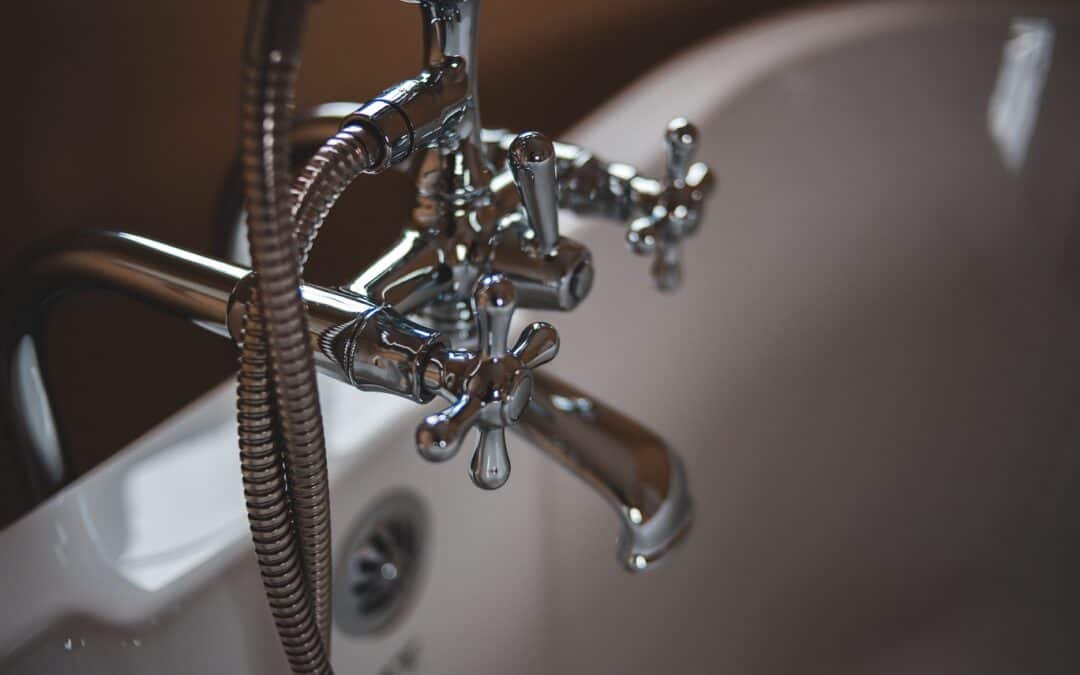Plumbing maintenance is essential to ensuring that your home’s plumbing system remains healthy and efficient, which ultimately translates into cost savings and a comfortable living environment.
Regularly maintaining your plumbing can prevent small issues from turning into expensive and time-consuming problems. Whether you are a property owner or a tenant, following these top plumbing maintenance tips will give you peace of mind knowing that your home is in top shape.
Avoid Harsh Chemicals for Cleaning Drains
When discussing the topic of keeping your drain spick and span, the typical response is to reach for store-bought drain cleaners. Their appeal lies in their apparent ease of use and the promise of swift results.
However, sometimes, a professional touch can make all the difference, such as Dan’s Plumbing. Their expert services ensure your drains are properly taken care of without causing any damage that can possibly result from harsh store-bought chemicals.
Nonetheless, while these quick-fix solutions seem convenient for tackling that pesky grease or unwanted hair accumulation in your pipes, they frequently contain formidable chemicals that might do more harm than good.
Intriguingly, these potent chemicals have a tendency to gradually gnaw away at the integrity of the pipes over a whispered passage of time. This corrosive process can lead to weakened points and progressive leaks, fostering a series of persistent issues in the pipeline down the road.
Rather, consider embracing nature’s offerings such as baking soda, vinegar, or even hot water as safer and gentler clog-busting alternatives. Alternatively, you might want to invest in such reliable standbys as a plain old drain snake or a trusty plunger.
Monitor Your Water Pressure Regularly
An essential part of keeping your plumbing in optimal condition is monitoring your water pressure regularly. High water pressure can put extra stress on the pipes resulting in leaks or even pipe bursts.
Using this link, you can find more advice on how to effectively manage water pressure. It’s recommended to keep water pressure under 80 psi (pounds per square inch); anything higher could spell trouble for your home’s health.
To monitor your home’s water pressure, invest in a water pressure gauge or consult with a professional plumbing service to help you. If high water pressure is detected, installing a pressure regulator on the main water line can resolve this issue.
Check for Leaks and Fix Them Promptly
One of the easiest plumbing maintenance practices you can carry out is checking for leaks in your home periodically. Small and hidden leaks can lead to bigger problems like structural damage, mold growth, or higher water bills if left untreated. Regular inspection of faucets, toilets, appliances, and exposed pipes – especially around bends – will allow you to catch any issues early on.
If you encounter a leak, remember that prompt action is vital. Many times, it might just be that washers have worn out and can be easily replaced; such was the case with James who noticed his kitchen faucet had begun dripping over time but quickly resolved the issue through a simple washer replacement.
Maintain Your Water Heater
A properly functioning water heater ensures that your home has hot water when needed without issues like inconsistent temperatures or loud noises from the tank. Routine maintenance such as inspecting for leaks around connections and flushing the unit at least once per year will go a long way in maintaining your home’s comfort levels and prolonging your water heater’s lifespan.
Remember to test the temperature-pressure relief valve (TPR valve) annually as well — doing so ensures that excess pressure gets released if necessary; otherwise you could face an unpleasant situation similar to what Andrew experienced: forgotten regular checks led to excessive buildup which resulted in costly repairs when his TPR valve failed due to wear over time.
Ensure Proper Insulation of Pipes
The importance of pipe insulation lies in its capacity for promoting energy efficiency and putting a preventive stop to pipe condensation – a condition that can open the floodgates for moisture-related issues like uncontrolled mold proliferation or unsavory decay.
Pipes that have been properly insulated also greatly diminish the risk of freezing during the shivery winter months. This dramatically minimizes chances of pipe eruptions and the subsequent, dreaded flooding.
Should you reside in a region where the mercury has a habit of dropping significantly, it’s imperative to conduct thorough inspections of all exposed water pipes.
Check those hidden in unheated areas, whether they are tucked away in crawl spaces, lurking within attics, or cooling their heels in basements, and make sure adequate insulation is wrapping them snugly. This small, proactive move not only curtails heat loss dramatically, but could also end up making a noticeable dent in your energy costs.
Final Thoughts
Regularly monitoring your home’s plumbing system, using natural cleaning solutions, checking for leaks, regulating water pressure and insulating pipes are essential for efficient functioning. Maintain water heaters and seek professional help when needed. Investing time and resources in consistent plumbing maintenance gives homeowners peace of mind knowing their homes are well-cared for mechanically.

Recent Comments